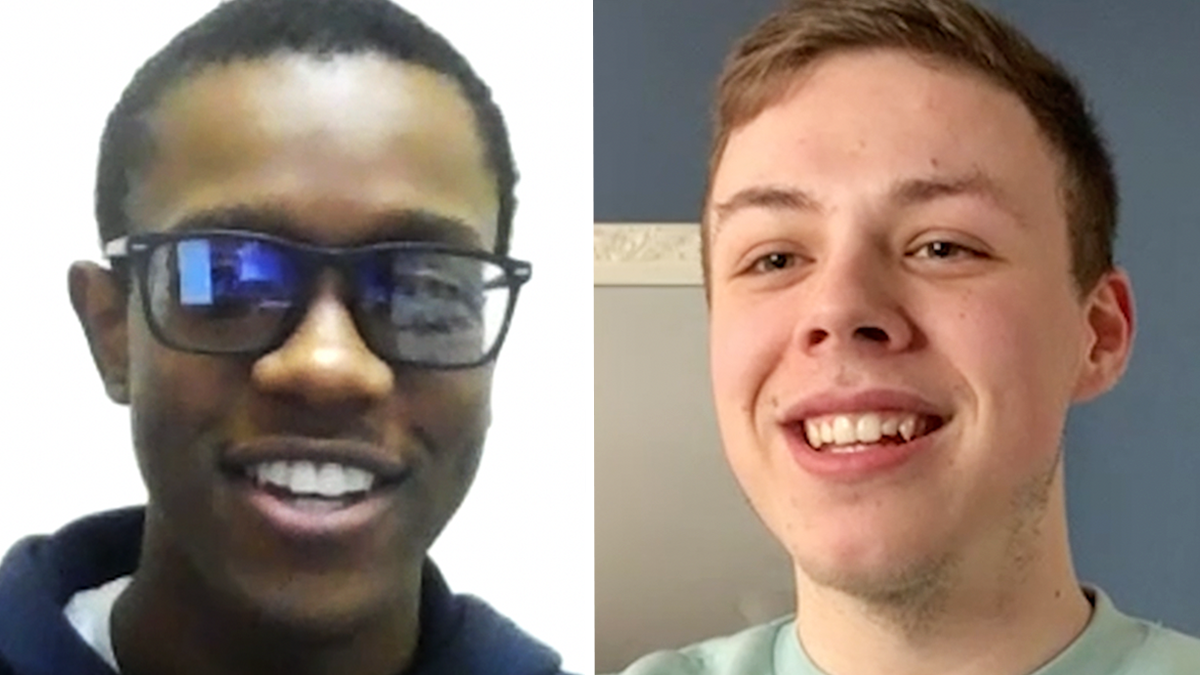Pictured: Ellie Dunachie, Paula Morgan and Sam Williams
Orchestras for All (OFA) is delighted to announce today its commitment to being truly national with new colleagues joining the management team from Glasgow, Liverpool and London.
Despite new challenges faced over the past few years as a result of the coronavirus pandemic, Orchestras for All has also embraced new opportunities and evolved and developed in response.
Nick Thorne, OFA’s Executive Director, says: “The world had to adapt quickly to working remotely back in March 2020 and we have taken the opportunity to adopt this way of working and ensure that our resources are no longer tied to our London office. I’m excited we have the opportunity to be able take this shift to learn and work with skilled colleagues all over the UK.
“There are so many benefits to embracing remote/hybrid working, not least the personal reasons of accessibility, flexibility, wellbeing and the ability to spend more time with loved ones or forgotten hobbies. The move will have a positive impact on the environment and will enable us to gain regional perspectives and understanding in addition to our colleagues already based in Cornwall, Lancashire and London.”
Joining the team over the next few weeks are Ellie Dunachie nee. Carnegie-Brown (Head of Programmes and Partnerships), Paula Morgan and Sam Williams (Programme Managers for National Orchestra for All and the Modulo and Music Leadership Training programmes, respectively).
Let’s find out more about Ellie, Paula and Sam…
National Orchestra for All musicians embrace the digital world at NOFA Festival 2021
Tell us a little about yourself, where you’re from and why music is important to you.
Ellie: I grew up in London, although my family home is now in Scotland. I joined our local church choir when I was seven years’ old, which I absolutely loved, and was lucky enough to learn the piano, flute and recorder in primary school. Music has played a huge role in my life ever since.
Paula: Throughout my professional career, I have worked with grassroots organisations breaking down barriers to the arts and creating new opportunities for people living in areas affected by poverty, refugees, asylum seekers, people with disabilities, and more. I am incredibly passionate about the arts and the transformative ways that it can help people, and feel very proud to be bringing this to OFA.
Sam: My musical journey began almost as soon as I was born as my mum ran a record shop and both parents played instruments at home. I learned the guitar, piano, clarinet, bass clarinet and oboe as a child, although I was truly terrible at playing the oboe! Alongside these instruments, I sang in choirs, rock bands and as a soloist in variety shows and musicals.
Why is group music-making so vital for young people today?
Sam: For the past 13 years I have taught music in schools in the North West of England. I am proud to have seen a number of my students go on to careers in music. Helping students to improve, grow in confidence and achieve their dreams has been my most rewarding experience.
Ellie: The most important thing is that every young person has the opportunity to make music. If you’re in a supportive environment, making music can be incredible and so much fun. From personal experience, I also know how it can build confidence and skills, and also lead to life-long friends.
Young musicians play ‘Spoitoresa’ during National Orchestra for All’s winter rehearsal at Westminster School
Paula: Music can help channel how you are feeling, build connections that have been lost and also rebuild confidence. It is a great way to focus on an activity rather than what may be going on inside you and give you an outlet.
I know myself the first time we played together as a band, I felt like parts of me were being fitted back together like a jigsaw that had some pieces missing I wasn’t even aware of. And it’s fun! Looking around seeing everyone smiling, enjoying themselves and feeling proud is priceless. I can’t think of a better way to bring young people back together.
Share some fun facts you’d like people to know about you
Paula: I was in a K-POP class for a year in Seoul even though I couldn't speak any Korean, so just had to follow the teacher’s moves. I have an encyclopaedic knowledge of Ru Paul’s Drag Race lip sync performances. When I hear a song, I can usually name the drag queens who have performed it.
Sam: I have an eclectic taste in music and perform music from as far back as the 1500s… sometimes in full costume!
Ellie: I used to take my recorder on our family holiday, and my younger sister would always hide it. I only recently found out that my parents actually asked her to do this… to this day I still have no idea why. I’ve also been skydiving and sung for the Queen!
Ellie, what’s your involvement in the Association of British Orchestras conference in Glasgow?
Ellie: I am speaking at the ABO conference this week as part of Find Your Way about post-covid leadership. Find Your Way is a nine-month programme focused on learning about and developing your own leadership style.
I’ve already learnt so much and am really looking forward to the conference this year. While I’m in Glasgow, I’m also very excited to be meeting Paula for a coffee!
Find out more about the existing Orchestras for All team here >






























